How Much House Can I Afford? Pre-Approval vs. Your Finances
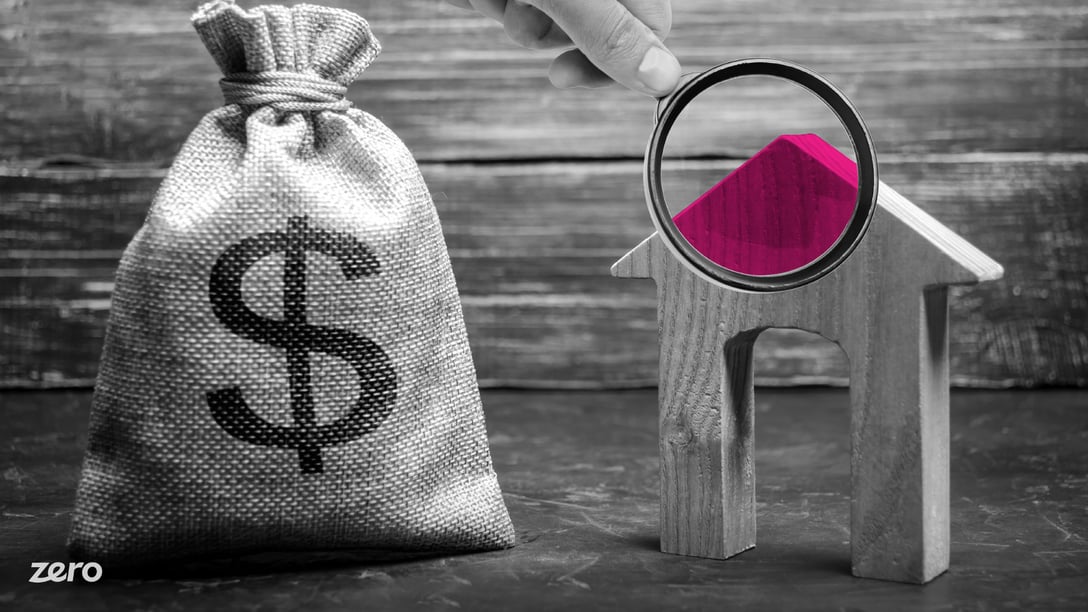
If you have gone through the pre-approval process but need to take a deeper dive into how much house to buy, follow our guide to find out what makes the most financial sense for you.
How Much House Can I Afford?
When you begin the process of buying a house, your lender typically provides a detailed calculation of the loan amount you qualify for based on your income, existing expenses, and credit score, among other factors. If you qualify for a larger loan amount than you expected, it usually enables you to consider homes at a slightly higher price point.
While the numbers on your mortgage rate might look great, it may be worth taking a step back and look at the parts of your personal life that don’t show up on paper. Like, the financial aspects of your lifestyle, your spending habits, and plans or goals that will affect how much you can afford in the future.
Should you use that maximum mortgage amount, or is it worth it to take out a smaller loan? Looking at the bigger financial picture will help you discover what’s right for your financial situation.
How Do Lenders Calculate Your Mortgage Amount?
A mortgage amount is calculated based on a number of basic conditions: the sale price of the home, the amount of money you are able to put down as a down payment, and the type of mortgage that you want to use.
But although you can calculate these numbers yourself, there are other factors affecting your maximum mortgage amount that are more difficult to understand. Mortgage amounts differ based on factors like your personal financial history, the type of property you want to buy, and your loan-to-value ratio.
Personal Finances
Your credit score, income statements, and debt-to-income ratio all impact your mortgage rate. Lenders typically look for a credit score of 620 or higher, and some might be even pickier. Also important in addition to your salary is your debt-to-income ratio (DTI).
If you make $3600 a month but pay $1400 of that monthly income to student loans and a car payment, your DTI ratio is 38 percent. If you want to learn more about how to calculate debt-to-income ratio, there are many online tools that can help. Most lenders won’t accept a DTI ratio over 50 percent.
Property Type
Certain types of property will cost more to finance because of the risk involved to the lender. The value of a condo, for instance, is dependent not only on your financials but the well-being of the entire building.
If the condo association is struggling to upkeep the building or make payments, each unit loses value. Manufactured homes also cost more to finance since they depreciate in value over time.
Loan-to-value Ratio
The loan-to-value ratio (also known as a LTV) is determined by looking at the amount of the loan you’re asking for from the lender compared to the total price of the house. If you’re buying a $200,000 home and are putting down 20% as a down payment ($40,000), your loan amount is $160,000.
That means that you’re borrowing 80% of the home’s total value. An 80% LTV is considered higher risk and will probably result in a higher mortgage rate.
Do you know what the differences between interest rates and APR are? Find out here!
Does Your Mortgage Amount Cover Closing Costs?
Depending on your LTV and DTI ratio, your lender may give you the option to cover closing costs in your mortgage amount. This decision comes with some careful considerations, such as how that affects your overall debt and how it may increase the final costs that you pay on the mortgage.
Although a lender might approve of rolling closing costs into your mortgage payments, keep in mind this increases the amount of debt that you owe, which will affect not only your monthly payment but other future financial decisions. In addition, including closing costs in a mortgage subjects them to charged interest, which will cost you thousands of extra dollars out of your pocket over the term of your mortgage.
Closing costs typically come between 2 and 5% of the final sale price. Although this is a big amount of additional cash, it might be more expedient to get that cost out of the way so it doesn’t affect your finances in the future.
Mortgages can come with fees that you may not even know about. Read all about them here!
Should You Take the Maximum Mortgage Amount?
Before you jump at the biggest loan offer on the table, look beyond the numbers at the other factors that come with that dollar amount. While it hurts to lose out on that higher-priced home that you love or to fork over more of your hard-earned savings to a down payment, a smaller mortgage can actually be better for your finances.
We wrote a whole blog about the ins and outs of buying a house with zero down payment. Read it now!
How Much of My Income Should Go to My Mortgage Payment?
Financial experts stick to the rule of thumb that mortgage costs should never make up over 28% of your total monthly expenses. Unfortunately, lenders will often let you borrow much more than this number.
A lower mortgage will give you space in your budget to save more cash and is a great way to apprehend raised property taxes. It also gives your monthly expenses more breathing room, so that you can buy furniture or save up for future schooling without going into credit debt.
Should I Buy a House for the Maximum Mortgage Amount?
While buying a house is an exciting process, it can affect other financial areas of your life without careful planning. Think not just about how much money you’re putting into a down payment, but how those monthly payments will offset other expenses and saving goals.
If you are anticipating a big lifestyle choice in the future, such as expanding your family or going to school, it’s important to have a clear picture of how those costly decisions will be affected by the expenses associated with buying a home.
Our Mortgage Learning Center features blogs on a wide range of mortgage and refinancing topics.
How Much Should Your House Cost?
When getting ready to buy a home, put together a home buying checklist. There’s a lot more that goes into the buying process besides your down payment and mortgage rate. What will closing costs be? Will you have to make any important house repairs? How much will it cost you to move and buy items like furniture?
If you’re wondering how much your house should be, make sure you have a good grasp on your own financial history and habits. Thinking about the big picture will help you navigate mortgage rates with greater ease and understanding of what works best for you.
Ready to Take the First Step?
This page last updated: November 8, 2022
Read more on this topic below.

When you buy a house and start making mortgage payments, your payment consists of four different components, known...

The vast majority of mortgage loans require you to put down a certain percentage of the selling price upfront....

Whether you’re a first-time buyer or you’ve purchased a home before, you’ve likely heard of a homeowner’s association....
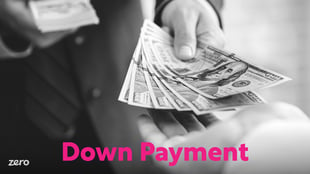
There’s a lot of expenses to keep in mind when you’re thinking about buying a home. Between the price of the home, property taxes, your mortgage...
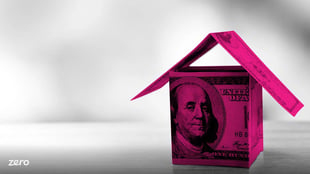
Conventional loans are mortgages offered by private lenders, banks, and institutions that are not backed by the government. Unlike FHA, USDA,...

Some homebuyers refuse to purchase a property if it is part of a property owner association. On the...

Research indicates that 58% of homeowners in HOA communities and single-family homes pay an average monthly fee...

Private mortgage insurance is something millions of homeowners pay for each year. However, this type of insurance does not protect

When you first set out to buy a home, it can feel like you’re taking an exam you forgot to study for. You have to make quick...
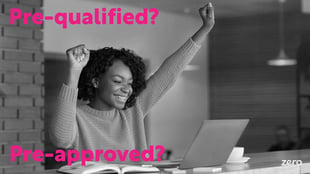
When looking to refinance or buy a house, the pre-qualified vs pre-approved mortgage debate can be...
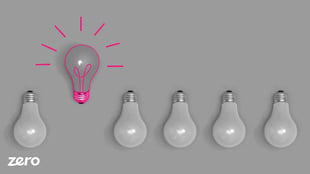
It’s likely that your mortgage loan will be the largest loan you have during your lifetime. Mortgages are not a one size...

For many people, owning a home is part of the American dream. To make this dream a reality, most people will take out a...

Whenever you’re looking to buy a house, you’ll quickly realize there are a lot of fees associated with obtaining a mortgage....
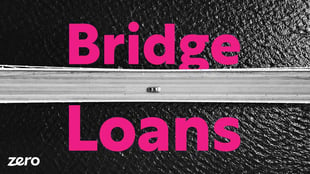
A bridge loan is a short-term loan a borrower may use while a more long-term financing contract is finalized. Bridge...

A loan estimate is crucial to obtain when looking for a loan. This estimate not only gives you the details of a mortgage but also compares offers...

There are many moving parts and various people you’ll deal with throughout the homebuying process....

If you’re looking to buy a house, and do not have a mountain of cash saved up, you’ll need to consider getting a mortgage to help you finance this...
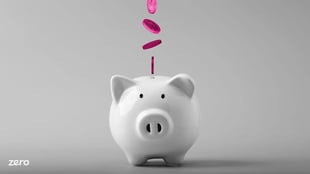
If you find a property that you’re highly interested in buying but are concerned that the seller might choose...

Buying a home? You’ll likely need to get it appraised before you receive the clear to close. If you’re wondering...

If you’re an active service member, a veteran, or the surviving spouse of a veteran, and you want to ...

There’s no doubt, COVID-19 changed the world in countless ways and took us all by surprise. From an...

Whenever you are borrowing money, whether it’s for a new mortgage, a refinance, credit card, or car loan, you’ll hear...

If you’re new to buying a home, you probably have quickly realized the overwhelming amount of options there...

If you’ve already gone through the lengthy process of writing offers, securing financing, and arranging inspections for your...

One of the most important steps to buying a home is deciding on a mortgage loan and deciding on a loan involves settling on a good...

First time home buyers are often surprised when they learn about all of the expenses that are associated with ...

Purchasing real estate is not as simple as finding the right home, submitting an offer, and signing the closing paperwork; many...
